LA MANO FEST! INTERVIEW TO LA NOCHE DEL RATÓN CREW
Interview by Manuel Arija Translation by Sonia Sanz
Interview to Night of the Rat director and producer David R. Losada and Asier Vázquez.
LA MANO: Hi David and Asier, first of all we want to thank you for answering our questions, you’re going to be physically and digitally in the Festival, but it’s always a great pleasure to be able to ask you some questions that later can be uploaded to our web for the most curious ones.
We don’t want to give any spoilers…but we have to start with the question that have been asked to you a thousand times “Why that ending?” We’re on our seats watching the movie and it ends up blowing our minds.
DAVID: What we have to give till this point, or at least we tried, it’s a thriller with an approach and of course an unusual rhythm in this genre. There are also some conventions that we wanted to avoid or even blow… and in this context, and like you said before, without giving any spoilers, we think this ending is coherent, because all the key decisions of the main character have already been taken in that moment. And that’s what really matter to us. Also we think is healthy and positive incite the viewer and encourage them to become active ones, that “fill in the blank spaces”. Even though causing the viewer to get angry at some points. That is our gamble.
LA MANO: The film arrives with the necessity of telling a story, go from a short film to a large one, and you ventured in the so called “trench’s movies”, also called ‘for love of the art’ (for fun) What does the cinema have that make us do these crazy things?
DAVID: In our case is something vocational, and it’s often complicated justify passionate decisions taken from the heart that may seem reckless: jumps without net. In our case we saw us with the strength to do more that what we were doing at that moment and we didn’t want to wait for anyone who allow us do so. In addiction we think that this is the best way, and maybe the only one, to learn how to do things: threw yourself into the void.
LA MANO: 6.000 euros, willing, hard work and tons of coffee. How did you make it?
ASIER: You get it right, a lot of hard work and coffee, haha! But otherwise, there have been some other elements: a fully talented compact group in which everyone have combined humbleness and their absolute trust in what the rest of the team members were doing. And this lead everyone to give the best of them. We’re lucky to have had a group of coworkers, who were already working on music videos and short films with us, that believe so much in the project and in how we explain them how we wanted to face it and make it happen. Besides, we added to the adventure some other people that were working with us for the first time in this project and who took part in all the intensity and implication. Without those the project would have been literally impossible. The other element has been an almost heroic resistance to stress and uncertainty, because there have been times of great difficulties during the process, due to the lack of budget. But if you believe in your project at the end you shoot down any wall.
LA MANO: The story looks like it has been done for a low cost production: an only location, a few acting members…¿How did the idea of Night of the Rat generate?
DAVID: Yeah, of course we have to choose a story that we were sure we could produce. Yet we didn’t want to limit ourselves to have two, three, four characters siting there and chatting. We wanted to start choosing a story of this genre, and trying to give it a twist. We didn’t want to do a pleasant film, maybe because we didn’t count with the fact that we were going to have such success, speaking of audience. However we’re having more success than we expected. To our surprise, despite that unpleasant presence, very varied audience are responding very well to the film, in festivals and projections we have attended. Of course, that’s awesome.
LA MANO: The film barely has dialogues and is based especially on an unhealthy atmosphere, Asier, how did they convince you to produce this film?
ASIER: Actually there was no need to convince me. I was already working as part of the team, as a producer, in their short films and music videos. It turned out naturally that I also take part of that job surrounding myself with people to work with, who show support and with which work side by side. Sticking to the style and the plot of the film, I truly trust on what David and Rubén write. Even though to me as a blind person the film is not easy to follow, I’ll know irrefutably that what we have here will be a really good film, with the cinema’s good basics and the necessary dose of risk and courage.
LA MANO:Was it easy to get a gas station for the shooting?
ASIER: Yes, it was probably the easiest part of all that we had to get so we could shoot ‘La Noche del Ratón’. Everything was hatched in what I think was a no longer than a minute call. We picked up a gas station that fulfill the conditions, I talked to the owner, explain him what was the issue in twenty seconds, then there was a few little questions, he told us that he was fine with it and that’s all. Few days later another person form the team who to the gas station and seal the deal with a hand shake.
LA MANO: Was shooting at night a production strategy? How was shooting only at night?
ASIER: Shooting at night was the only way we had to get ahead with the film. The gas station we were shooting in was open during the day, so the only time we have to shoot was from the closing time to the opening time. Having in mind the time spend in adapting the set and let the gas station right back at how it was before, the real shooting hours were few, four or five at most. Shooting at night change your pace of life. You don’t rest well the few hours you try to sleep when you get home. And when you wake up the next morning you have to start preparing all the shoot relate things of that day, with all the tiredness accumulated in the body. However, going every day to the gas station to shoot at night is something we will remember with a smile in our faces.
LA MANO: Unai García fully support the whole film, how was the casting?
DAVID: With Unai we have worked in short films, in a few ones, in fact, and we really know we can trust him to make the character his own.
Recently he has picked up the prize for best actor in ‘La Semana Internacional de Cine Fantástico y de Terror de la Costa del Sol’ and he has also been nominated in the ‘Detective Fest of Moscow’, which is really great due to all the incredible work and responsibility he has carried on his shoulders. About Miriam Cabeza, she is very well known in the Basque Country, that is the place we have been shooting and developing the project, due to some of the most successful programs and series of EITB, the regional public television. We had worked with them before in a music video, we raised them the possibility and they accept with even thinking about it. They have a freshness and spontaneity that they had been working on thanks to comedy genre, and they also exploit it very well in other genres.
LA MANO: Can you say, that the film that you had in mind… Is the film we finally get to she in the movie theater?
DAVID: No, never. People have been asked a thousand times “What is directing a film?. Well, I will say that is fighting through all the process (preproduction, production, post-production) in order that what you are getting doesn’t differ to much from the idea you had in your head. It will never be the same. The degree of distance will make a difference in the result, if it’s either a success or a failure. Or a intermediate degree. And it has nothing to do with having shot with 6.000 euros of budget. I’m sure that with several zeros in the budget the situation is practically the same, it has nothing to do with it.
LA MANO: You first take the leap to US successfully, What is missing in Spain for there to be an independent film market?
DAVID: So many things… It’s complicated, independent film is not (generally) profitable facing the potential consumer, that a previous fabric that allows the production of independent film exist is a chimera. Of course is sad, but it’s like that. This is shooting ourselves in the foot a bit, those who are trying to make this kind of films, with some more means and possibilities, but right now in Spain that is the scene. Fortunately there’s a very good network of festivals that allows the exhibition of tons of films, very varied and of very interesting people and, in sometimes, this places allow some films to have some recognition after the release. But It’s a struggle, of course! What isn’t healthy is to try to compare us with the US system for example and complain about it. It has no sense. We must look at closest models, like the French one; but still we have to understand that even these are models of which we can appropriate and apply in a few years. There’s a long way.
LA MANO: Thank you, we’re sure the audience will enjoy watching your film.
DAVID: Thank you, it’s a pleasure be in your festival and have the opportunity to share the film with your audience!
Festival de Cine Fantástico,Terror y Ciencia Ficción, La Mano
https://twitter.com/LaManoFest
https://www.facebook.com/LaManoFest
#LaManoFest2015

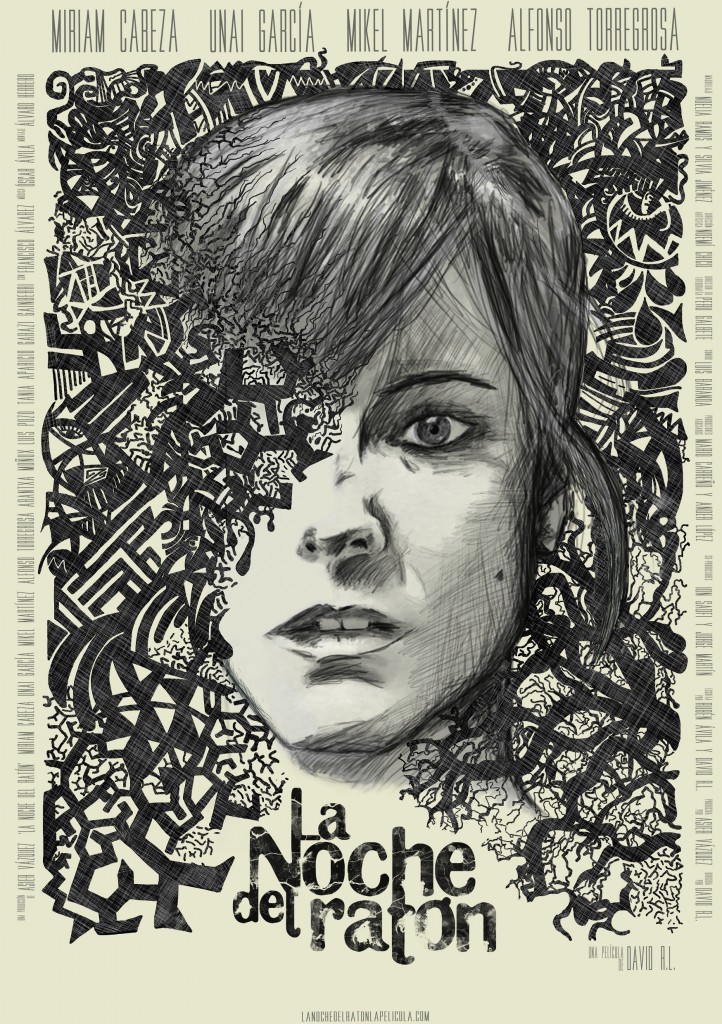
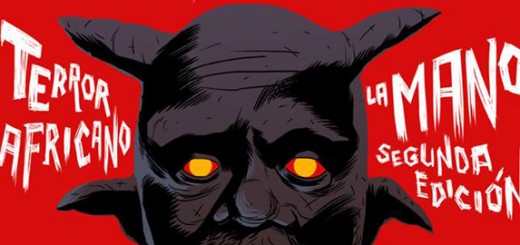
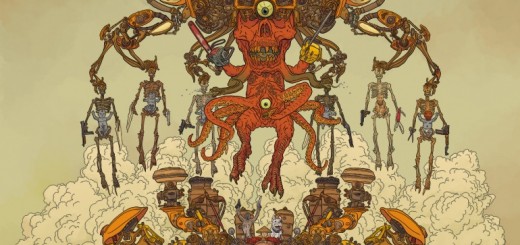
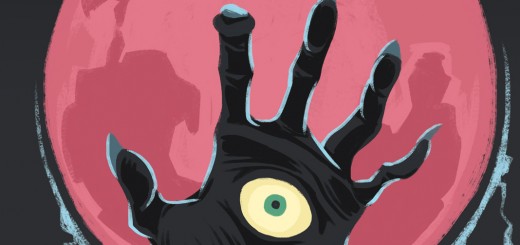

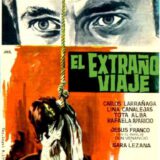

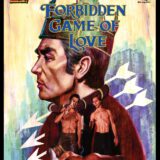
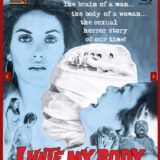
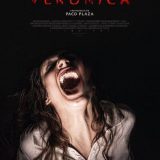

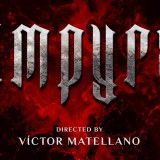
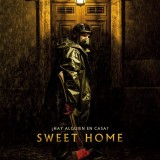
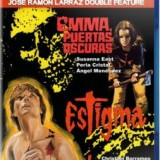
1 Response
[…] INTERVIEW TO LA NOCHE DEL RATÓN CREW […]